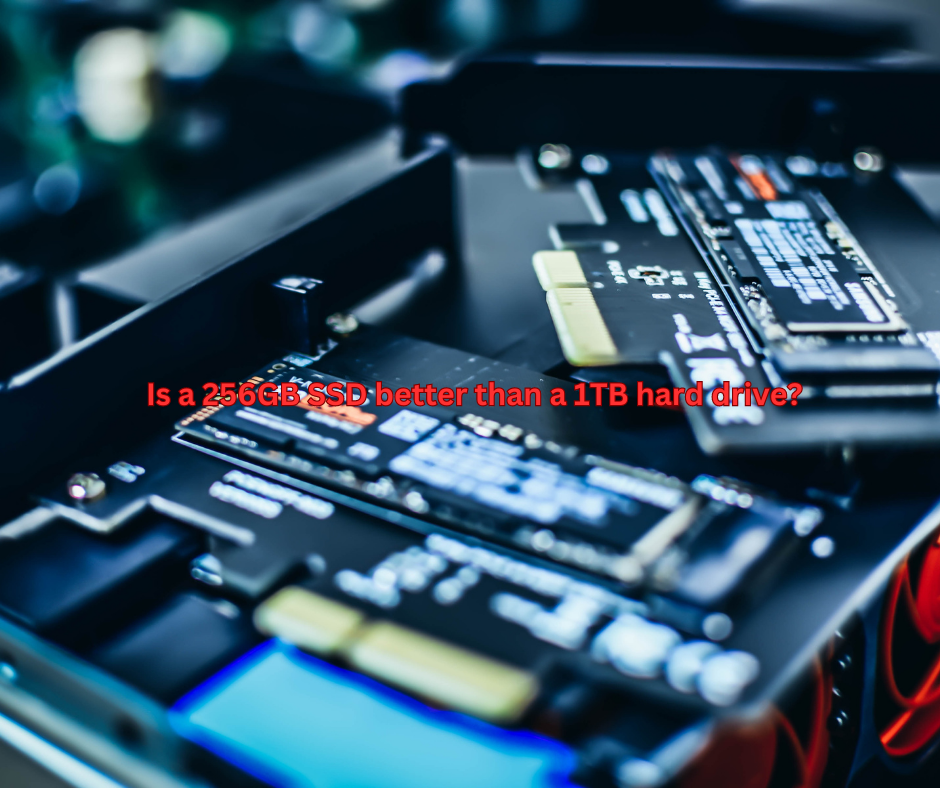Before getting its answer, first lets get to know what are SSD devices and why these are so popular.
A Solid-State Drive (SSD) is a storage device that uses integrated circuit assemblies to store data electronically. It differs from traditional hard disk drives (HDDs) in its technology and performance characteristics.
SSDs are based on flash memory, a type of non-volatile memory that retains information even when power is not supplied. This flash memory is organized into chips, which are then grouped together on a circuit board to form the SSD. Unlike HDDs, which use spinning disks and mechanical read/write heads, SSDs have no moving parts, resulting in faster data access times and improved durability.
One key advantage of SSDs is their speed. They offer significantly faster read and write speeds compared to HDDs. This means that tasks such as booting up a computer, launching applications, and transferring files can be performed much more quickly. The faster random access times of SSDs also make them ideal for handling multiple simultaneous read/write operations, resulting in smoother multitasking and improved overall system responsiveness.
Another benefit of SSDs is their reliability. Since SSDs have no moving parts, they are less susceptible to mechanical failures and damage caused by physical shock or vibration. This makes them highly suitable for portable devices like laptops, where durability is important. Additionally, the lack of moving parts contributes to lower power consumption and reduced heat generation, resulting in better energy efficiency and a cooler operating environment for the computer.
SSDs come in various form factors to accommodate different devices. The most common form factors are 2.5-inch drives, which are used in laptops and desktops, and M.2 drives, which are smaller and commonly found in ultrabooks and compact systems. There are also PCIe-based SSDs that offer even higher performance for specialized applications, such as gaming or data centers.
While SSDs offer numerous advantages, there are a few considerations to keep in mind. One is the cost per gigabyte of storage, as SSDs tend to be more expensive than HDDs, although prices have been decreasing over time. Additionally, while SSDs have a finite number of write cycles, modern SSDs have built-in technologies like wear leveling and overprovisioning to extend their lifespan and ensure data integrity.
In conclusion, SSDs are storage devices that provide faster data access, improved durability, and increased energy efficiency compared to traditional HDDs. With their speed and reliability, SSDs have become a popular choice for personal and enterprise storage solutions, enhancing overall system performance and user experience.
Now let’s get to the point that Is a 256GB SSD better than a 1TB hard drive?
The superiority of a 256GB solid-state drive (SSD) over a 1TB hard drive depends on the specific use case and your priorities. Here are some factors to consider:
- Speed: SSDs are significantly faster than traditional hard drives. They have faster data transfer rates, quicker boot times, and faster application loading times. So, if you value speed and responsiveness, the 256GB SSD would be better in terms of performance.
- Capacity: Hard drives generally offer larger storage capacities at a more affordable price per gigabyte compared to SSDs. In this case, the 1TB hard drive provides a significantly larger storage space compared to the 256GB SSD. If you require ample storage for large files, media libraries, or games, the 1TB hard drive would be preferable.
- Durability: SSDs have no moving parts, making them more resistant to physical shock and less prone to failure due to impact. On the other hand, hard drives consist of spinning disks, making them more susceptible to damage if subjected to rough handling or sudden impacts.
- Noise and Power Consumption: SSDs are generally quieter and consume less power than hard drives. Since SSDs lack spinning disks, they produce minimal noise and require less energy to operate, resulting in improved battery life for laptops.
- Cost: Typically, SSDs are more expensive per gigabyte compared to hard drives. So, if cost is a significant consideration, a 1TB hard drive would be a more budget-friendly option.
In summary, a 256GB SSD excels in terms of speed, durability, power consumption, and noise levels, while a 1TB hard drive offers a significantly larger storage capacity at a more affordable price. Consider your specific needs, such as performance requirements, storage demands, and budget, to determine which option is better suited for you.

